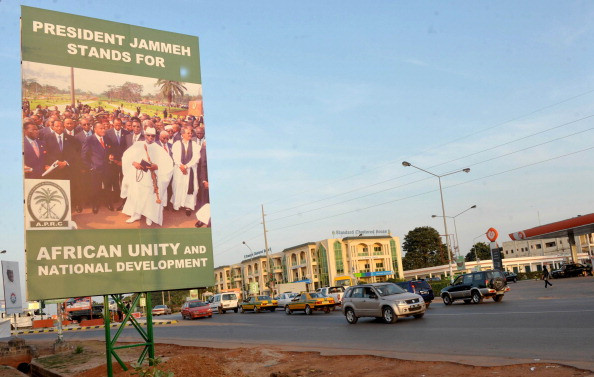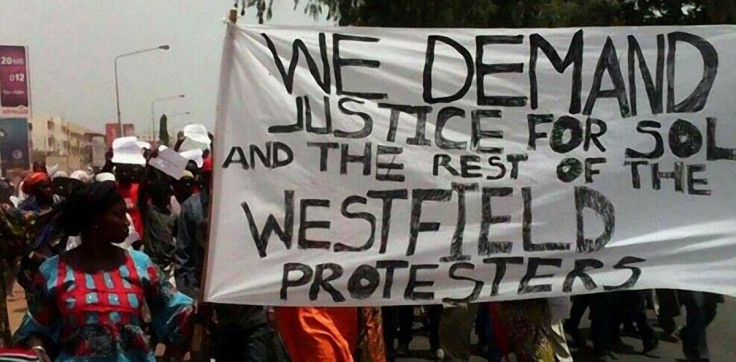Gambia election: Yahya Jammeh's government 'should face sanctions unless climate of fear ends'
HRW releases report on government's alleged crackdown in run-up to December presidential election.

A rights group has called on the international community to apply sanctions on the Gambia amid allegations the government is persecuting activists and political opponents in the lead-up to the presidential election in December. President Yahya Jammeh, who has been in power since 1994, is running for a fifth term.
Gambia has come under fire for the way it handled April protests in the capital Banjul, where people called for electoral reforms and Jammeh's resignation .
At least 50 people were arrested, amid fears the secretary of the United Democratic Party (UDP) opposition party, Solo Sanderg, and another party member died while in detention.
"Abuses committed since April, as well as Jammeh's repeated threats, have reinforced a climate of fear among many opposition politicians and activists that severely limits their ability to criticise Jammeh and his government," Human Rights Watch (HRW) said.
The organisation's new report is based on more than 100 interviews with, among others, journalists, politicians, activists and retired civil servants. Some of the protesters who were arrested claimed they were beaten and tortured while in detention.
"The Gambian government should immediately release all peaceful protesters, initiate a transparent and impartial investigation into opposition deaths in custody, grant opposition parties access to state media outside the framework of the official campaign, and cease using state resources for campaigning," HRW said.
"The government should also ensure that the security forces respect the opposition's rights to campaign freely and peacefully without fear of harassment or arrest."
The organisation added the US and the European Union should impose sanctions including travel bans and asset freezes if "clear benchmarks to meet ahead of the election are not met".
IBTimes UK's exclusive interview with Isatou Touray
Meet first female presidential candidate in Gambia's history
Right groups have claimed the April protests were the result of the repressive government of Jammeh, who is often accused of violating human rights and cracking down on dissidents, journalists and activists.
The leader has also been accused of inciting tensions by making genocide remarks against the Mandinka ethnic group.
Some people have claimed the Gambia's recent decision to pull out of the International Criminal Court (ICC) was made to avoid a possible prosecution of Jammeh for alleged human rights violations he committed during his office.

Government's position
The Gambian embassy in London has not responded to a request for comment.
On 19 October, HRW contacted the Gambian government with a summary of the report's findings, but also did not receive a response.
In a public address to the nation in May 2016, Jammeh defined members of the Gambian opposition as "opportunistic people supported by the West". He added: "I will bow to only Allah and my mother. I will never tolerate opposition to destabilise this country."
Earlier in May, Samsudeen Sarr, Gambia's deputy ambassador to the UN – based in New York – was recorded saying he would open fire on protesters in Banjul. The clip surfaced on 9 May, hours after activists and the opposition claimed security forces attacked people who had gathered outside the High Court in Banjul.
Sarr accused the person who secretly recorded him of doctoring the audio, having released just a few seconds of a two-hour-long conversation. He also claimed people behind the protests were "anti-Gambia government dissidents" in the US and Europe.
© Copyright IBTimes 2025. All rights reserved.






















